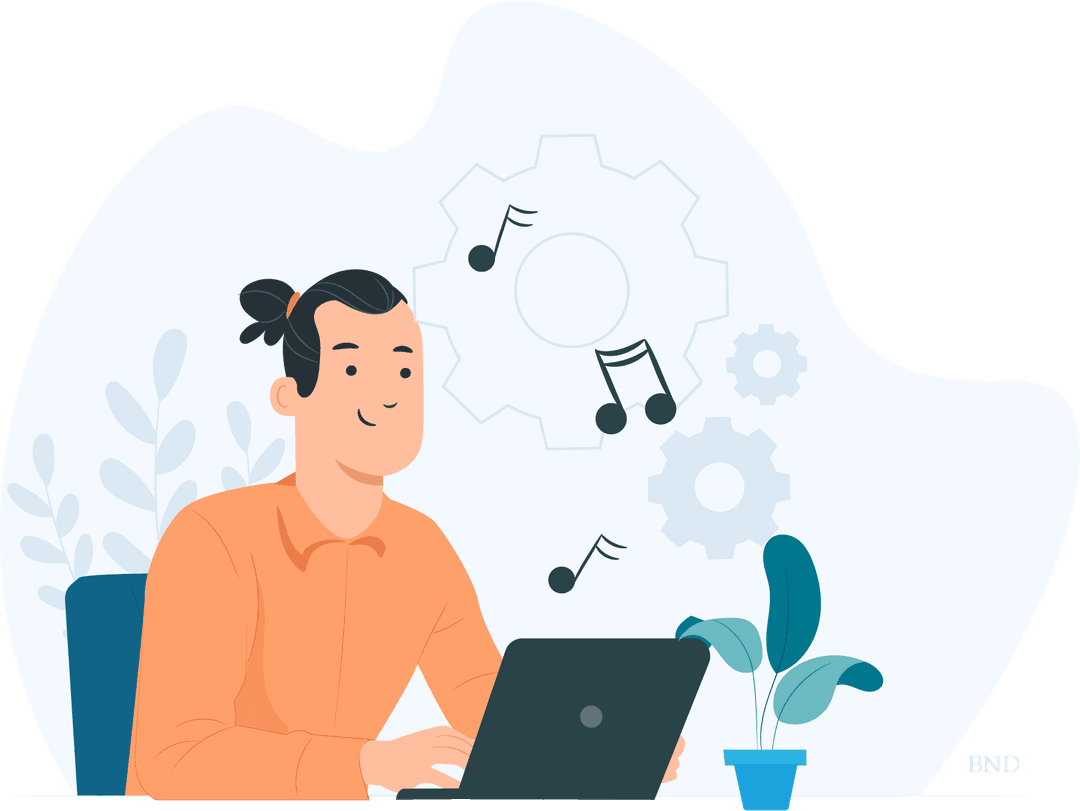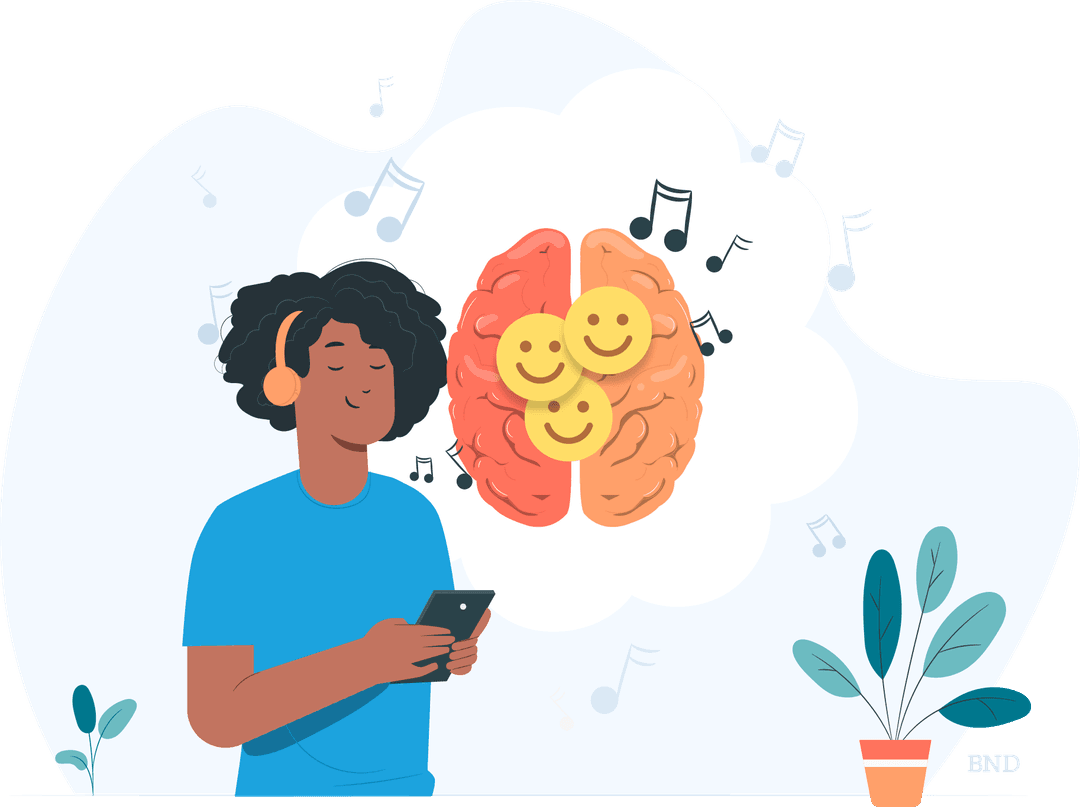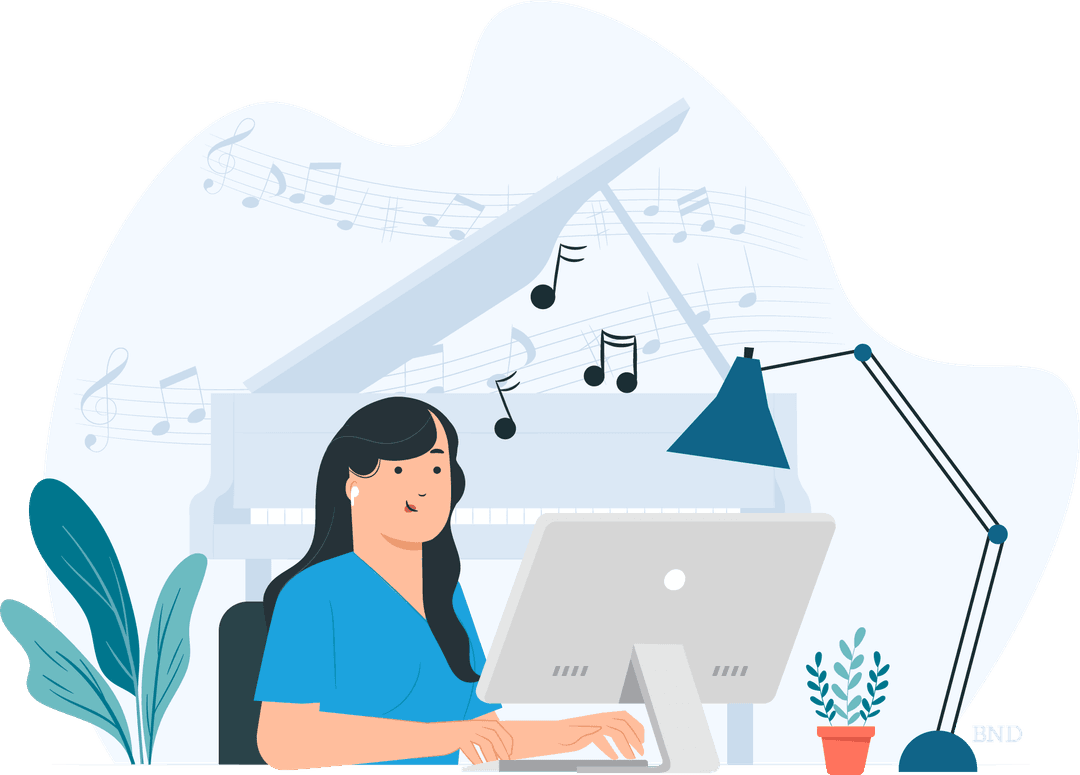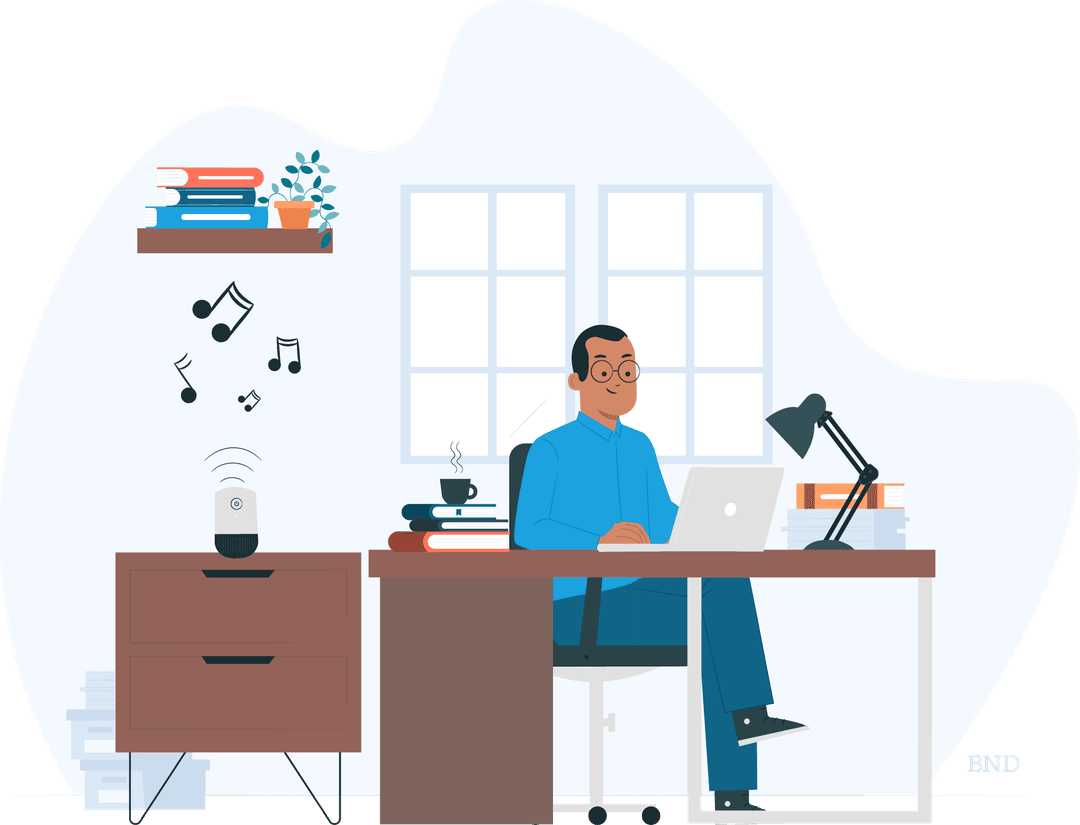Business News Daily provides resources, advice and product reviews to drive business growth. Our mission is to equip business owners with the knowledge and confidence to make informed decisions. As part of that, we recommend products and services for their success.
We collaborate with business-to-business vendors, connecting them with potential buyers. In some cases, we earn commissions when sales are made through our referrals. These financial relationships support our content but do not dictate our recommendations. Our editorial team independently evaluates products based on thousands of hours of research. We are committed to providing trustworthy advice for businesses. Learn more about our full process and see who our partners are here.
Music and Its Effect on Productivity
Although scientific studies have been inconclusive about how music affects productivity, there's anecdotal evidence of a positive relationship.

Table of Contents
Music is a universal language that can speak to people on different levels. You can use music to get pumped up for a sporting game or relax on spa day, but what can music do for your productivity? Here’s what the experts have to say.
Music can increase or decrease your productivity

Daniel Barolsky, a professor of music at Beloit College, told us that music can be helpful or detrimental to productivity depending on the user’s personality, what they’re listening to, and what they genuinely enjoy.
“Available evidence indicates that music favored by the listener can temporarily improve arousal or mood as well as elevate cognitive performance,” Barolsky said.
Will Tottle, mental health expert and author of the article series Mind-Boosting Benefits, agrees that music’s effects vary by person, but he believes the differences are more about individual tendencies than musical preference.
“For many, music can help someone focus, get more done, and feel motivated,” Tottle said. “However, there are some people who find music very distracting, and their focus drops drastically when listening to music and trying to complete a task.”
The science and myths behind music and the brain
Here’s some scientific background – and some not-so-scientific background – behind the connection between music and the brain.
Debunked: The ‘Mozart effect’
For years, there was a theory called the Mozart effect, which assumed that people became smarter after listening to classical music by Mozart. According to an article in Tottle’s series, this has been proven false. Listening to classical music can boost your spatial-temporal reasoning, but only temporarily.
Spatial-temporal reasoning is the transformation and relation of mental images in space and time. For example, you would use this reasoning if you were playing chess and needed to think ahead several moves. It is crucial to how we think, reason and create. Tottle said the Mozart study only proved an increase in spatial-temporal reasoning for about 15 minutes.
Although Mozart may not make you permanently smarter, this study may be something to keep in mind if you are trying to boost productivity over a short period while performing a duty that requires spatial-temporal reasoning. [Related article: 20 Easy Ways to Boost Your Productivity]
Debunked: The notion of Western art music as superior
Barolsky also referenced previous scientific studies, remarking that the historic theory behind Western art music as a superior genre has been debunked.
“Earlier studies have sought to celebrate the effects of some music, such as Western art music, over other non-Western and more popular music,” he said. “However, it was proven that studies with focuses on this type of music came with bias that skewed the results and have been disproven.”
The truth: Music can increase your dopamine levels.

If the previous scientific studies were disproven, what scientific studies are accurate? Merriam Saunders, psychotherapist and adjunct assistant professor in the counseling psychology department of Dominican University, clarified the actual science behind music’s effect on the brain.
“Music can have a dopaminergic effect on the brain, meaning it creates dopamine,” Saunders said. “Dopamine is what stimulates the prefrontal cortex, which is the center of the brain responsible for planning, organizing, inhibition control and attention.”
Saunders explained that if your brain produced more dopamine, you’d have a more effective prefrontal cortex that helped you become more productive. However, you’d need to listen to music you enjoy to stimulate dopamine production.
What do scientific studies say about music and productivity?
As the experts above note, scientific studies haven’t reached a universal conclusion about the relationship between music and productivity. In fact, no studies on this topic have been published at all in the 2020s. However, a handful of studies spanning a decades-long range support the experts’ claims.
- Journal of Applied Psychology: A 1966 study in the Journal of Applied Psychology found that employees in a skateboard factory liked hearing music at work. These employees said that the music made them feel more productive. However, while there may have been increased morale, the study found that this productivity increase was imagined, as music had no measurable effect on the group’s productivity.
- Applied Ergonomics: A 1972 study in the scientific journal Applied Ergonomics found that background music increased the efficiency of repetitive tasks. One of the four experiments conducted in the study found that music increased productivity by 7.4%.
- Totaljobs: In a 2016 Totaljobs survey, 79% of respondents said they’re more productive if they listen to music while they work. Among the survey’s 4,553 respondents, 48% said music helped them focus. Another 24% said it helped them mask external distractions such as noise and conversation. Similarly, 7% said music helped them avoid internal distractions such as irrelevant thoughts. [Related article: 50 Inspirational Songs for Entrepreneurs]
- Journal of Applied Research in Memory and Cognition: A 2017 Journal of Applied Research in Memory and Cognition study found that college students performed worse on cognitive tasks while listening to music. While cognitive task performance and productivity aren’t the same, redoing low-quality tasks of any sort reduces your productivity.
Music types that increase productivity
The experts we spoke to had slightly different opinions about which musical genre best increases productivity. Barolsky and Saunders believe the best genre for productivity depends on the type of music an individual enjoys, because that genre is more likely to increase dopamine levels and, in turn, productivity.
However, Saunders suggests that the best approach to choosing music is to create a playlist of songs you really enjoy but have heard so often that you don’t need to focus on the lyrics or beat. Playing this type of music creates background noise that increases dopamine without distracting you.
While all the experts agree that the most efficient music type varies by person, Tottle thinks two specific genres are the best overall for productivity: classical music and the sounds of nature.
“The first [reason] is that there are no words, and this lowers the potential for distraction,” he said. “Secondly, these genres are actually able to boost your mood, increasing feelings of joy and contentedness so that you feel more motivated and able to work.”
Other genres Tuttle believes can boost productivity and motivation include funk music and video game and movie soundtracks.
Music types that decrease productivity

The experts agree that a music genre that negatively impacts productivity is also primarily based on preference. If an individual dislikes a musical genre, listening to that music will result in distraction and less productivity.
Saunders and Tottle both indicated that there’s a fine line between music being energizing and too engaging. Lyrics and tempo are both factors. “If a person needed to concentrate but [they were] listening to the lyrics, it would negatively impact the brain’s ability to get the task done,” said Saunders.
In the same tune, Tottle said music with lyrics or a really fast tempo could distract workers and lead to lower productivity.
“Similarly, if the tempo is too low, it can leave you feeling drowsy and lead to a lack of motivation,” he said. [Related article: Distracted Workers Are Costing You Money]
Tasks affected by music

The experts agreed that music affects various tasks differently. Saunders said some tasks are positively impacted as long as they are controlled by the prefrontal cortex of the brain. This includes planning, organizing, paying attention, controlling impulses and working memory – the ability to hold recently learned information at the ready.
Exercise is positively impacted by the presence of upbeat music, according to Tottle. The tempo can motivate you to keep moving to the beat, and it can even act as a positive distraction.
Overall, the presence of music does positively impact productivity, but it depends on various factors:
- What are your musical preferences?
- Are you listening to music you enjoy?
- What task are you performing?
- Is the music the right beat?
- How much attention do the lyrics demand?
This may seem like a complex combination of factors, but once you create the right playlist to fit your preferences, you might notice a shift in your productivity and efficiency.
Max Freedman contributed to the writing and reporting in this article. Source interviews were conducted for a previous version of this article.












